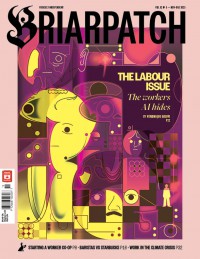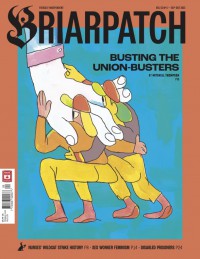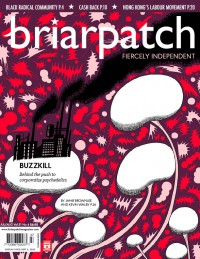-
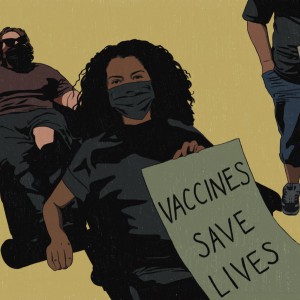 Magazine
MagazineTerry Fox, the Freedom Convoy, and disability politics
Terry Fox is the most famous disabled person in Canadian history, a figure who “united the country” during his cross-country marathon. Now, Fox’s iconography is being used to support the Freedom Convoy’s anti-vaccine, anti-mask agenda. What kind of unity does Fox really represent?
-
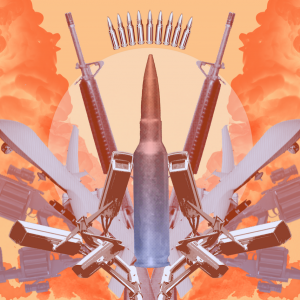 Magazine
MagazineDisability and war
Across the world, people are disabled in vast numbers by war, occupation, and imperial violence. How can disability justice confront the U.S. and Canadian war machines?
-
 Magazine
MagazineWhat is disability justice?
Members of the Disability Justice Network of Ontario’s Youth Action Council discuss the present and future of the disability justice movement.
-
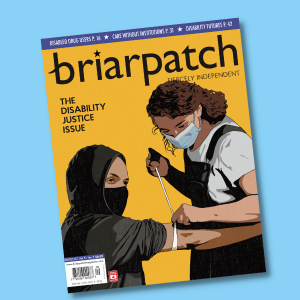 Magazine
MagazineDisabled leadership and wisdom
When we say we want disability justice, we don’t just mean wheelchair-accessible buildings and sign-language interpretation. We mean an end to the systems and structures that disable and debilitate us and a future where there is enough care, community, and support for everyone to thrive.
-
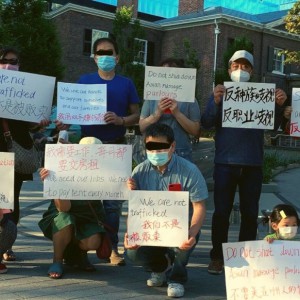
-
 Magazine
MagazineA progressive response to transport costs must undo “the social ideology of the motorcar”
Mobility is not just how we get from A to B; it is about social justice and health, housing and democracy, and the climate crisis.
-
 Magazine
MagazineA reading list for building transformative movements in so-called Canada
Designing and building cohesive, disciplined, and transformative mass movements isn’t easy. This reading list is an offering to anyone committed to that effort.
-
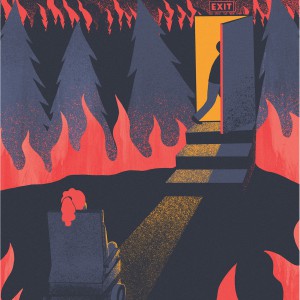 Magazine
MagazineB.C.’s climate adaptation disability crisis
In B.C., 2021 was one of the most extreme weather years on record. Each new crisis pulled the curtain back on an ugly truth about the province’s climate adaptation strategies: they leave disabled residents behind.
-
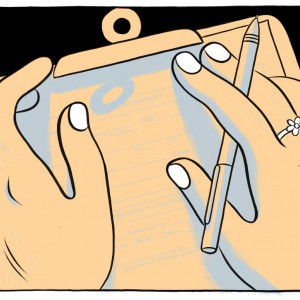 Magazine
MagazineThe growing struggle to access gender-affirming health care in rural Canada
Demand for gender-affirming health care is surging across the country. Already facing the brunt of a primary health care crisis, small provinces and territories struggle to meet the need.
-
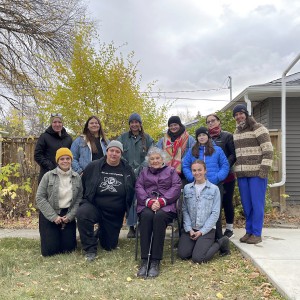 Magazine
MagazineThe People Who Own Themselves
A grassroots collective is putting forward a different vision of a Métis future – one based on reciprocity, good governance, and anti-colonialism.
-
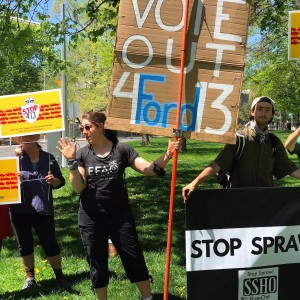 Magazine
MagazineStopping the Big Sprawl
In southern Ontario, Doug Ford plans to convert farmland and natural areas into suburban housing. But a coalition of farmers, environmentalists, and Indigenous activists are fighting back, and asking: “Do we need sprawl at all?”
-
 Magazine
MagazineTo save the bees, we must confront capitalist agriculture
Honeybees pollinate millions of acres of monocultured crops and produce vast amounts of honey for sale. They have become workers in the landscapes of capitalist agriculture. But they’re dying at a terrifying pace, plagued by mites, pesticides, and poor nutrition.
-
 Magazine
MagazineReflections on winning the Fight for $15 in Saskatchewan
In some ways, winning a $15/hour minimum wage by 2024 is a truly hopeful sign for Saskatchewan politics – and shows that even the most right-wing governments will bow to movement demands. In other ways, it’s deeply inadequate.
-
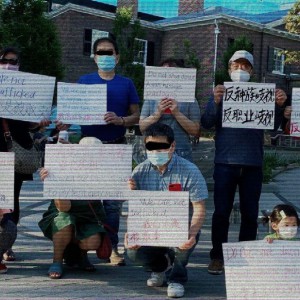 Magazine
MagazineAnatomy of an anti-trafficking policy campaign
In Newmarket, Asian massage workers have been engaged in a battle with the town council, which is intent on shutting down their businesses by claiming that the workers are both disreputable criminals and sex trafficking victims.
-
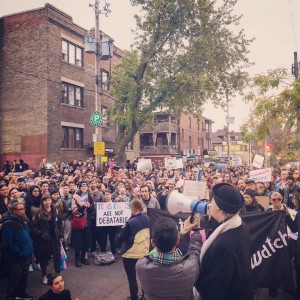 Magazine
Magazineradiant incipience
the revolution will need savvy / party planners, capable / of seeing / how the carnival’s already here.
-
 Magazine
MagazineIndigenous persistence reading list
These books and films represent an unflinching critique of colonialism from a perspective where the personal and the political cannot be separated.
-
_300_300_90_s_c1.jpg) Magazine
MagazineThe birds shall return: Imagining Palestinian feminist futurities
Envisioning a liberated Palestine means imagining liberated Palestinian women. What is a Palestinian feminist future, and how do we get there?
-
 Magazine
MagazineThe right to return to work
At the beginning of the pandemic, the Pacific Gateway and Hilton Metrotown hotels laid off their workers – then refused to hire them back. Hotel workers are fighting for their jobs, and for the future of the hotel industry after the pandemic.
-
 Magazine
Magazine“Safe supply is the future”
From drug users in Vancouver to opium poppy growers in Mexico, activists across borders say safe and legal drugs will save lives.
-
 Magazine
MagazineThe myth of police as “embattled heroes”
The Winnipeg police union says officers are constantly under attack by everything from “gang members” to video games to bedbugs. It’s a strategy to persuade the public that the only solution is more police and more money.

